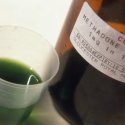Consequences of Cocaine Addiction & the Need for Treatment
As one of the strongest Schedule I narcotics around, cocaine carries an incredibly high addiction potential. Most people take to cocaine because of the immediate “jolt” this drug causes. Cocaine’s addiction potential goes into action as of the first time a person tries the drug.
When first starting out, cocaine produces increased energy levels, improved concentration and feelings of confidence. With repeated use, these effects are harder come by, so users take larger quantities to bring on the desired effects.
Within a fairly short period of time, users find themselves trapped inside a cycle of dependence and cocaine addiction. At this point, the need for cocaine addiction treatment becomes painfully apparent.
Dependency
Cocaine addiction breeds two types of dependency –
- Physical
- Psychological
Once physically dependent, a person will start to experience the drug’s withdrawal effects on a regular basis. Withdrawal effects may include –
- Feeling “fried” or strung out
- Fatigue
- Inability to sleep through the night
- Frequent mood changes
- Irritability
- Loss of appetite
Many people fall into the trap of taking more of the drug to overcome uncomfortable withdrawal effects. According to the National Institute on Drug Abuse, this “remedy” only strengthens the body’s dependence on the drug.
With ongoing use, a person will eventually start to depend on cocaine effects to cope with daily life. In effect, the mind comes to believe it needs cocaine in order to function. Once a person reaches this point, a psychological addiction has taken root. It’s the psychological component that drives a cocaine addiction, making it all but impossible for a person to stop using.
Overdose Potential

Cocaine abuse and addiction causes financial struggle, health problems, and leaves concerns of overdose.
In spite of its near immediate effects, cocaine produces a short-term “high” that leaves users wanting more. With each successive dose, the brain develops an increasing tolerance for the drug, which also contributes to the persistent cravings a person experiences. In effect, increasing tolerance levels drive the cocaine addiction cycle.
After so long, users start to enter into bingeing patterns, where multiple doses are consumed within short periods of time. Since cocaine acts as a stimulant drug, large quantities can easily overload brain and central nervous system functions. Once a person starts bingeing, any one dose can bring on an overdose episode, with stroke or heart attack being the most likely result.
The Need for Cocaine Addiction Treatment
Breaking a cocaine addiction means overcoming the body’s physical and psychological dependence on the drug. Detoxing, or breaking the physical dependency, will bring on withdrawal effects in full force making it all the more difficult to follow through. For this reason, cocaine addiction treatment programs administer medication therapies to help relieve uncomfortable withdrawal symptoms, according to the U. S. National Library of Medicine.
Medications used may include –
- Desipramine
- Baclofen
- Haloperidol
While some people may be able to break the body’s physical dependence on cocaine on their own, a psychological dependence can stay with a person for years after his or her last dose of the drug. Cocaine addiction treatment programs place a heavy emphasis on helping addicts break the mind’s dependence on the drug using motivational therapies, relapse prevention training and support group work.
Considering cocaine’s high addiction potential, someone trying to overcome cocaine addiction has a slim chance of living drug-free for any length of time without the necessary supports in place.

